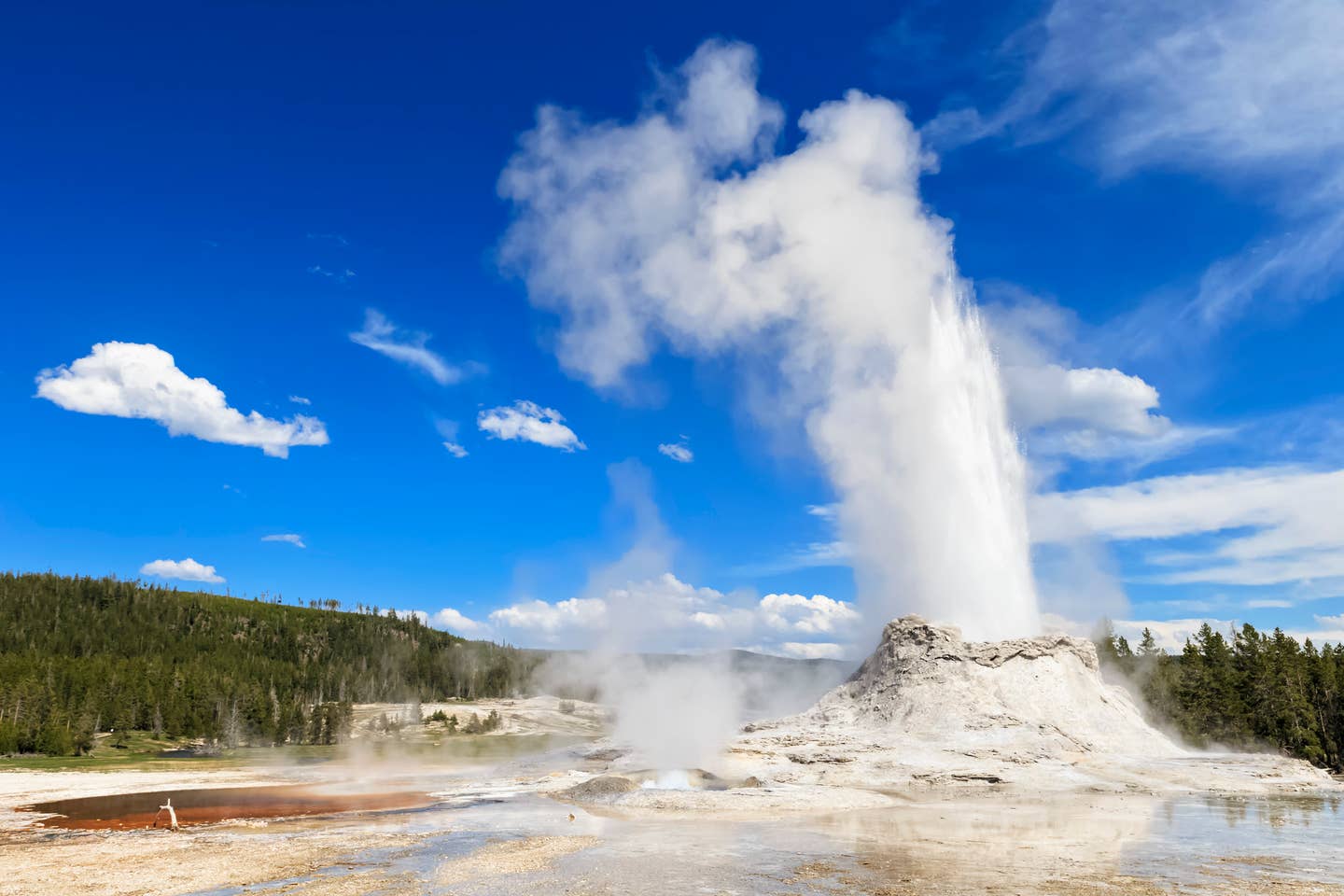
Can a Fungus That Grows In Yellowstone Park Be the Next Big Thing in Burgers?
Every now and then you read a story that you thought you knew how it was going to turn out, but instead, it takes a left turn, and that is what happened this morning when I opened my New York Times app. In this particular story, Is the Burger Nearing Extinction? by Frank Bruni, the left turn he took was an exit into Yellowstone National Park, where a rare fungus called Fy that is a "nutritional fungi protein" that grows in the extreme conditions near the sulfuric hot springs and famous geysers, and that can be made into all sorts of meat-like substances to create burger patties, chicken substitutes, or even plant-based healthier cheese-like foods.
Whether Americans will ever truly give up beef and chicken is the topic of Bruni’s excellent article in The New York Times. I assumed he would tell a predictable tale about the rise of popularity of plant-based meat substitutes (more than half of Americans say they are open to eating more plant-based foods, and the number has mushroomed since the pandemic). Every week we report on new places you can buy plant-based meats, such as the Beyond Sausage breakfast sandwich at Dunkin' and Peet's and the upcoming McPlant Burger, coming soon to a McDonald's near you.
But instead, he let us know about this new natural substance, basically a microbe that was discovered growing in the unique climate and soil of Yellowstone, that a company called Nature’s Fynd, is using to create the next generation of meatless products.
The company's Instagram explains it this way: "While doing research for NASA at Yellowstone National Park, we discovered a new possibility—a remarkable microbe living in a volcanic geyser. Then using the microbe’s unique qualities, our team invented a breakthrough fermentation method that creates Fy—a nutritional fungi protein with all 20 amino acids, rich in fiber, minerals, and vitamins. Fy is the nutritious, delicious, endless resource the planet needs now."
As innovative and imaginative protein alternatives go, this one is right out of a science fiction movie. Yet it's real, and so is their fundraising, $160 million to date. No less a blue sky thinker than Bill Gates is championing Nature' Fynd and other alternative protein sources, and he is also an investor in Beyond Meat and has written a book, How to Avoid a Climate Disaster about the mandate that we, who live in wealthy nations, give up meat if we know what's good for us and the planet.
https://www.instagram.com/p/CLKN1s_Fnr6/
“Private investment, public investment, researchers working in this space, start-up companies, announcements from established meat companies launching alternative protein initiatives: All of these were essentially flat until about four or five years ago,” Liz Specht, the director of science and technology for the Good Food Institute, a nonprofit that promotes meat alternatives is quoted in the Times as saying. “And then we saw a classic hockey-stick up-swerve.”
Nature's Fynd has raised $160million to develop this fungus into all sorts of cool new meatless products, Bruni writes, that the takeaway from Nature’s Fynd, whose story is not just a parable of innovation and imagination but also a glimpse into the ever more muscular push for alternative protein sources and the fleetly growing market for them.
https://www.instagram.com/p/CLKNr9Xlqyb/
More From The Beet






